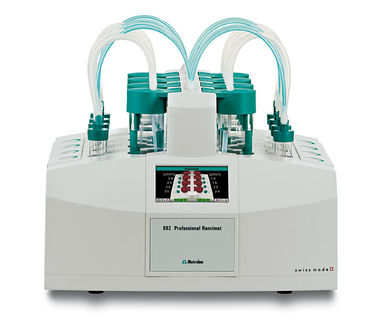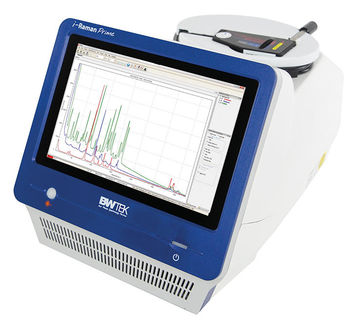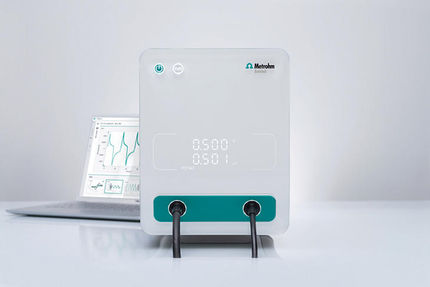To use all functions of this page, please activate cookies in your browser.
my.chemeurope.com
With an accout for my.chemeurope.com you can always see everything at a glance – and you can configure your own website and individual newsletter.
- My watch list
- My saved searches
- My saved topics
- My newsletter
Umbrella sampling
Product highlightUmbrella sampling is a technique in computational physics and chemistry, used to improve sampling of a system (or different systems) where ergodicity is hindered by the form of the system's energy landscape. It was first suggested by Torrie and Valleau in 1977[1]. Systems in which an energy barrier separates two regions of configuration space may suffer from poor sampling in Metropolis Monte Carlo runs, as the low probability of overcoming the potential barrier can leave inaccessible configurations poorly sampled – or even entirely unsampled – by the simulation. An easily visualised example occurs with a solid at its melting point: considering the state of the system with an order parameter Q, both liquid (low Q) and solid (high Q) phases are low in energy, but are separated by a free energy barrier at intermediate values of Q. This prevents the simulation from adequately sampling both phases. Umbrella sampling is a means of "bridging the gap" in this situation. The standard Boltzmann weighting for Monte Carlo sampling is replaced by a potential chosen to cancel the influence of the energy barrier present. The Markov chain generated has a distribution given by: with w(rN) a function chosen to promote configurations that would otherwise be inaccessible to a Boltzmann-weighted Monte Carlo run. In the example above, w may be chosen such that w = w(Q), taking high values at intermediate Q and low values at low/high Q, facilitating barrier crossing. Values for a thermodynamic property A deduced from a sampling run performed in this manner can be transformed into canonical-ensemble values by applying the formula: with the w subscript indicating values from the umbrella-sampled simulation. Subtleties exist in deciding the most computationally efficient way to apply the umbrella sampling method, as described in Frenkel & Smit's book Understanding Molecular Simulation. |
| This article is licensed under the GNU Free Documentation License. It uses material from the Wikipedia article "Umbrella_sampling". A list of authors is available in Wikipedia. |









